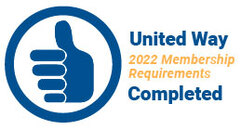|
William White is a pioneer in the field of addiction treatment and recovery. He has written several books on the subject, been recognized with multiple awards for his work, and maintains a website: williamwhitepapers.com
His book Pathways from the culture of Addiction to the Culture of Recovery (1996) gives clinicians and family members a picture of the world of addiction, the culture that that addicts live in and how treatment must address and replace all these elements to move people into a life of recovery. White gives a very vivid picture of this culture, its values, and the mind of those involved in addiction. He believes that those involved in addiction constantly change their words and actions based on who they are with and where they are, to maintain their drug supply and deny the seriousness of their addiction. The life of addiction is a ‘predatory lifestyle’ where survival depends on the ability to respond to the continually shifting environment of danger, threats and drama. The addict believes that everyone and everything in his environment is working to keep him from what his brain really needs (drugs) and make him face a reality is trying to avoid. He lie to his family, steals from a loved one, manipulates and cheats. As the addict continues down the path of addiction, these become easier and easier to do without remorse. Nothing is sacred or safe in the endless pursuit of drugs. His brain is telling him that his only focus and motivation is to obtain and secure a drug supply at any cost. White states that in this endless cycle of addiction, ‘drug users seek out and build relationships with other people whose drug use mirrors their own, nurturing the rituals of drug use, becoming a fully organized culture of drug use constituting a powerful stimulus promoting excessive drug use.‘ This culture separates those in addiction from those who are not. Values and priorities change from those not involved in drug use. Heroes of the drug culture are those who have learned how to manipulate and take advantage of others to promote their own drug use. Stories of avoiding arrest, maintaining a drug supply, obtaining money, working a hustle, aggression, violence, and surviving danger, glorify drugs and help others justify and minimize their own use. The more excessive and outside of societal norms, the more valued the experiences are. Those outside the drug culture are viewed as mockable, easy targets to be used and discarded when no longer useful. The culture of addiction separates people who are “in the life” from those who are not, providing acceptance and perceived value for those who may have never felt accepted and valued in normal society. I hope you are getting a sense of everything that must be overcome to enter into long-term recovery: attitudes, priorities, values, activities, friends, language, dress and appearance, etc. In addition to addressing the physical and psychological aspects of addiction, treatment must immediately provide ways to meet the needs filled by the addiction culture with another lifestyle. Any unmet needs can be a stimulus/trigger for relapse. Those in recovery say they have to replace their playmates, playthings and playgrounds. In other words, a whole new life must be adopted and embraced. Although it is a daunting task, there is hope. Treatment works. Recovery is possible!
0 Comments
Your comment will be posted after it is approved.
Leave a Reply. |
AuthorLynn Saylor is the AmeriCorps member working with the United Against Opioid Abuse Initiative alongside the White County United Way. She is a major facilitator of the United Council on Opioids serving White County and a regular contributor to local media. Archives
October 2020
Categories
All
|

 RSS Feed
RSS Feed
